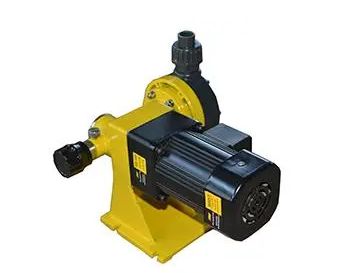Pump selection for corrosive liquid transfer
When delivering corrosive liquids, the choice of pump is crucial to ensure that the pump can operate stably and effectively prevent liquid leakage or corrosion of the pump body. The following are several key factors to consider when selecting a corrosive liquid delivery pump and the recommended pump type:
1. Considerations
Liquid properties:
Corrosiveness: Understand the corrosive strength of the liquid, including different types of corrosive media such as acids, alkalis, and salts.
Viscosity: The viscosity of the liquid will affect the choice of pump. High-viscosity liquids require a pump that can handle such liquids.
Temperature: The temperature of the liquid is also an important consideration because pumps of different materials have different tolerances to temperature.
Pump performance parameters:
Flow rate: Determine the required flow rate based on actual needs.
Head: Consider the delivery distance and height of the liquid to determine the required head.
Power: Select the appropriate pump power based on the flow rate, head, and the properties of the liquid.
Pump material:
Choose corrosion-resistant materials such as stainless steel, plastics (such as PVDF, PP, etc.), ceramics or special alloys to ensure that the pump body is not corroded.
Sealing performance:
Ensure that the pump has good sealing performance to prevent corrosive liquid leakage.
Maintenance and overhaul:
Choose a pump type that is easy to maintain and overhaul to reduce maintenance costs and downtime.
2. Recommended pump types
Shielded pump:
Advantages: It has the characteristics of no leakage and is particularly suitable for conveying corrosive, flammable and explosive, highly toxic, radioactive and extremely expensive liquids.
Application: Widely used in chemical, petroleum, pharmaceutical and other industries.
Diaphragm metering pump:
Advantages: It has the advantage of absolutely no leakage and is most suitable for conveying and metering flammable and explosive, highly corrosive, highly toxic, radioactive and expensive liquids.
Application: Commonly used in corrosive liquid conveying occasions that require precise metering.
Magnetic drive pump (including self-priming magnetic pump):
Advantages: Through magnetic coupling transmission, no mechanical seal is required, thus eliminating the risk of leakage, suitable for handling corrosive, toxic or expensive liquids.
Application: Widely used in chemical, pharmaceutical, electronic and other industries.
Centrifugal corrosion-resistant pump:
Advantages: Suitable for conveying corrosive liquids such as acids, alkalis, salts, etc., with large flow and high head.
Application: Commonly used for corrosive liquid transportation in chemical, metallurgical, electric power and other industries.
Long-axis vertical submersible pump:
Advantages: The pump body length can be customized, the operation is stable, it is suitable for large flow and high head applications, and the pump body is made of corrosion-resistant raw materials.
Application: Commonly used for transportation in low-level liquid storage devices such as underground tanks.

3. Summary
When selecting a pump for corrosive liquid transportation, it is necessary to comprehensively consider factors such as liquid properties, pump performance parameters, materials, sealing performance, maintenance and repair. Recommended pump types include shielded pumps, diaphragm metering pumps, magnetic drive pumps (including self-priming magnetic pumps), centrifugal corrosion-resistant pumps and long-axis vertical submersible pumps. The specific choice of pump still needs to be comprehensively considered according to actual working conditions and needs.




